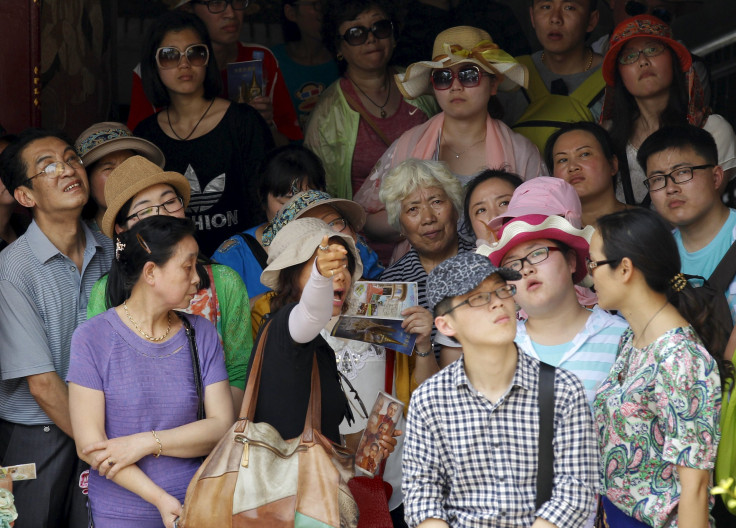Chinese Tourists Behaving Badly: Country To Keep Records Of Citizens Who Act Inappropriately Abroad

Chinese citizens who travel as tourists will be subjected to a supervision of sorts after a new measure was passed to have officials in China maintain records of people who commit crimes or act inappropriately abroad. The China National Tourism Administration made the announcement Monday on its website and authorized other nations to notify China if one or more Chinese tourists commits any social violations, including but not limited to gambling, prostitution and inflicting damage on public property.
The China National Tourism Administration on Tuesday further defined its new policy by saying separately that "tourism reflects on the country and the people's image," and that more "social supervision" of tourists is necessary, according to the Associated Press.
The move comes after Chinese tourists have had increased scrutiny placed on them because of a series of various crimes, such as the most recent instance when three people were arrested this past weekend for taking what was perceived to be indecent photos while on vacation in Japan, according to the Bangkok Post. Other tourists have gone so far as to open cabin doors in planes as a way to express discontent over flight delays. One Chinese tourist in February was caught on film kicking bells at a sacred Buddhist temple in Thailand.
The stigma associated with Chinese tourists is apparently affecting some nationals' desire to travel in other countries. "I never make trips during public holidays because I can imagine the chaos, the garbage ..., the commotion in places that should be peaceful, and disturbances caused on trains or flights," Shanghai resident Zhang Hui told China News Service.
The new Chinese mandate of "social supervision" was greeted by Zhang with some skepticism, as well. "Some forms of misbehavior listed in the new measure are already banned under other laws. For example, historical relics are protected by the Cultural Relics Protection Law. I think we don't need another measure in this area. Cases involving morals can only be resolved through education and with proper guidance. Personal records should be dealt with carefully without violating personal privacy."
In January the China National Tourism Administration launched a similar ranking system to rate how its citizens act while traveling overseas, allowing the information to be shared with tourism boards and travel agencies to help guide decisions on whether those potential tourists should be granted permission to go abroad.
© Copyright IBTimes 2024. All rights reserved.












